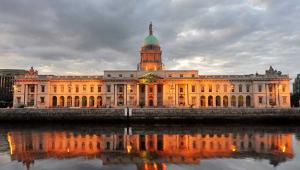A new series of essays from the Overseas Development Institute and the UK Trade Policy Observatory also warned of the impact on developing Commonwealth countries and non-LDC exporters in Africa, the Caribbean and the Pacific.
Authors highlighted that access to the UK market for these groups is currently governed by EU trade arrangements, which often require them to pay little or no tariffs or duty and enable big savings.
LDCs are particularly dependent on an agreement known as the Everything But Arms treaty, which gives them duty- and quota-free access to all products except for arms and ammunitions.
This saves many LDCs an estimated €385m ($432m) every year, and authors called for urgent steps to be taken to ensure markets stay open for developing countries.
Commonwealth developing countries could also face an additional €715m ($803m) per year in duties, estimated to be equivalent to 3.2% of their exports, if subjected to more standard arrangements post-Brexit. This is according to data provided by the Commonwealth Secretariat to the authors.
Middle-income countries in Africa, the Caribbean and the Pacific are likely to spend an extra €205m ($230) annually in order to sell to the UK, if preferential access slips away after the country leaves the EU, according to the report.
According to previous estimates by the ODI, developing countries stand to lose a total of $4bn in aid, trade and remittances, whose value has fallen substantially following the tanking of the pound immediately after the referendum vote.
The authors of the report stress that it is in the UK’s interest to sign trade deals with major emerging markets, including Brazil, Nigeria and Malaysia, which could raise as much as $7.3bn.
Moreover, as the UK rethinks its position on global trade, the report calls for the country to safeguard its arrangements with nations like Bangladesh, Belize, Mauritius and Fiji, which rely heavily on their access to the UK market.
It said the UK should not overlook developing nations as it moulds a new place for itself in worldwide trade, and should develop its own preferential access mechanism as well as a “bridging arrangement” to use in the meantime.
The report noted: “The potential to define a new trade strategy, agree new trade agreements and use new aid and trade tools constitutes a major opportunity for the UK to continue championing the cause of trade and development.
“It is also an opportunity for the UK to make trade policy work more effectively and efficiently in delivering development opportunities.”














